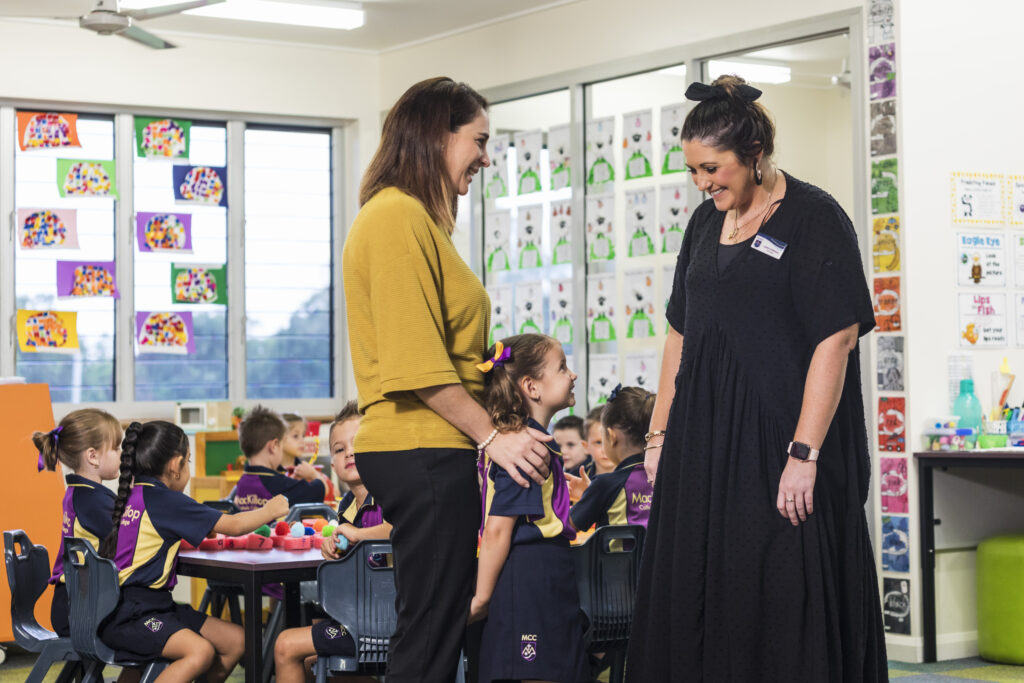
The Early Years phase of schooling is designed for children typically aged 4-7 years which ordinarily equates to Prep – Year 2.
Within the Early Years phase, teachers provide scaffolding and support to students as they begin to grow in independence, work towards learning goals and develop collaborate and cooperative learning skills.
During the early years, students become familiar with routines and expectations of school life assisting them to capitalise on their learning opportunities and experiences.
Students have multiple opportunities to activate and demonstrate knowledge and understanding as well as develop their thinking and reasoning skills. Teachers plan for student learning by developing and articulating learning intentions and success criteria that reflect high expectations. The early years program is aligned to the Australian Curriculum [http://www.australiancurriculum.edu.au/] and supported by the Queensland Curriculum and Assessment Authority (QCAA) [https://www.qcaa.qld.edu.au/20735.html].
Learning and teaching areas in the Early Years Phase include:
- Religious Education
- English
- Mathematics
- Science
- Health and Physical Education
- Humanities and Social Science
- The Arts
- Technologies
- Languages
In the early years of schooling, children have a natural curiosity about their world and possess a natural desire to make sense of it. This provides a platform to construct and review their learning through interactions with others, experimentation, scaffolding, explicit teaching, practice and play in the classroom and beyond. This helps them make sense of a world that is outside their immediate experience, as they connect new knowledge with what they already know or believe. This also sometimes provides an opportunity to challenge what they know or believe. (Shape of the Australian Curriculum, Version 2)
The Early Years Curriculum at MacKillop Catholic College acknowledges eight principles which form the basis for the early phase of learning. (Early Years Curriculum Guidelines http://www.qcaa.qld.edu.au/downloads/p_10/ey_cg_06.pdf) It is around these principles that the early years teachers make curriculum decisions and scaffold children’s learning in the early years:
- Children are capable and competent and have been learning since birth.
- Children build deep understandings when they learn through all senses and are offered choice in their learning experiences.
- Children learn best through interactions, active explorations, experimentation and by representing their learning through a variety of modes.
- Children’s positive dispositions to learning and to themselves as learners are essential for success in school and beyond.
- Children learn best in environments where there are supportive relationships among all partners in the learning community.
- Early childhood programs are most effective when they recognise, value and build upon the cultural and social experiences of the children.
- Building continuity of learning as children move to and through school provides foundations for their future success.
- Assessment of young children is an integral part of the learning-teaching process and is not a separate activity.


